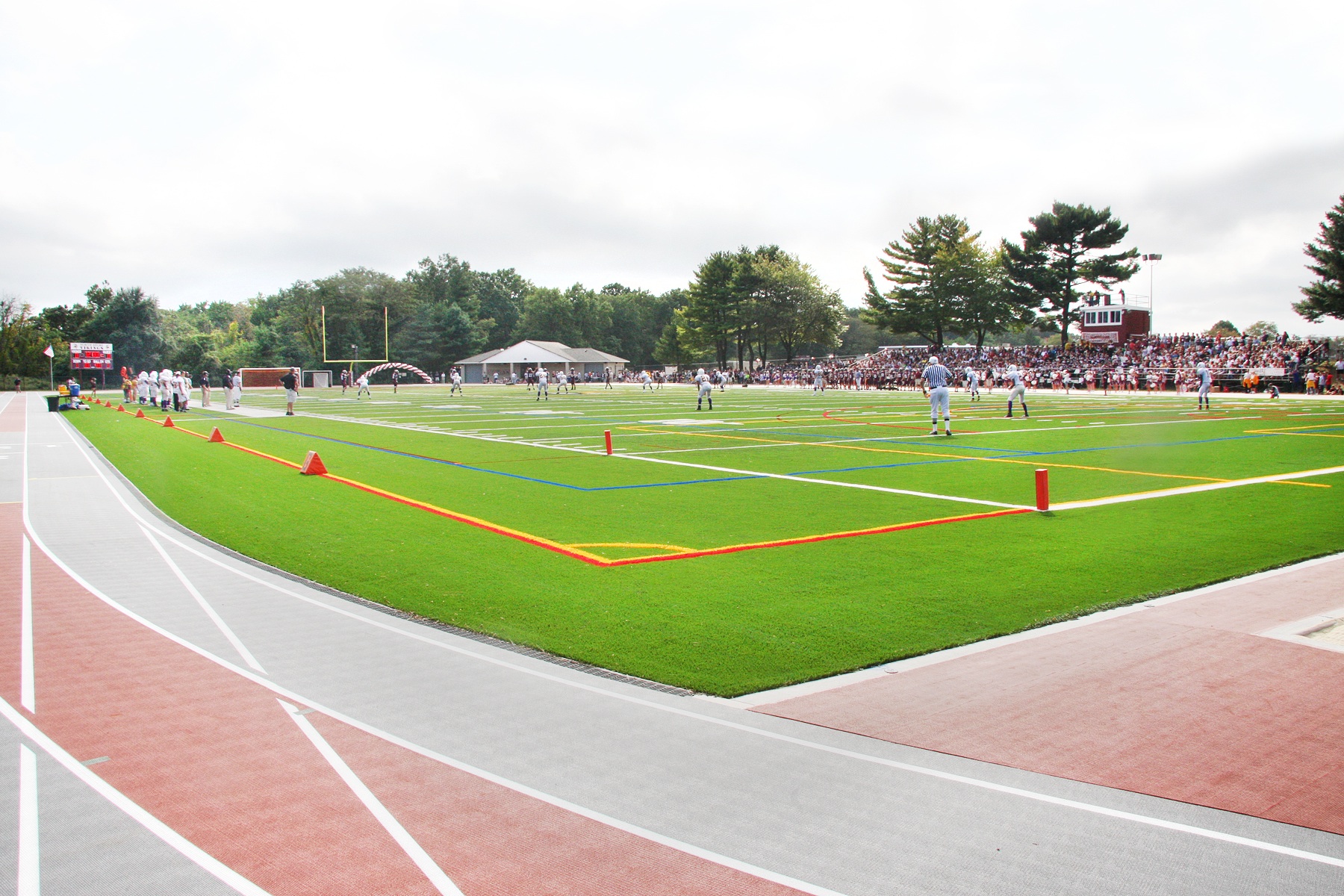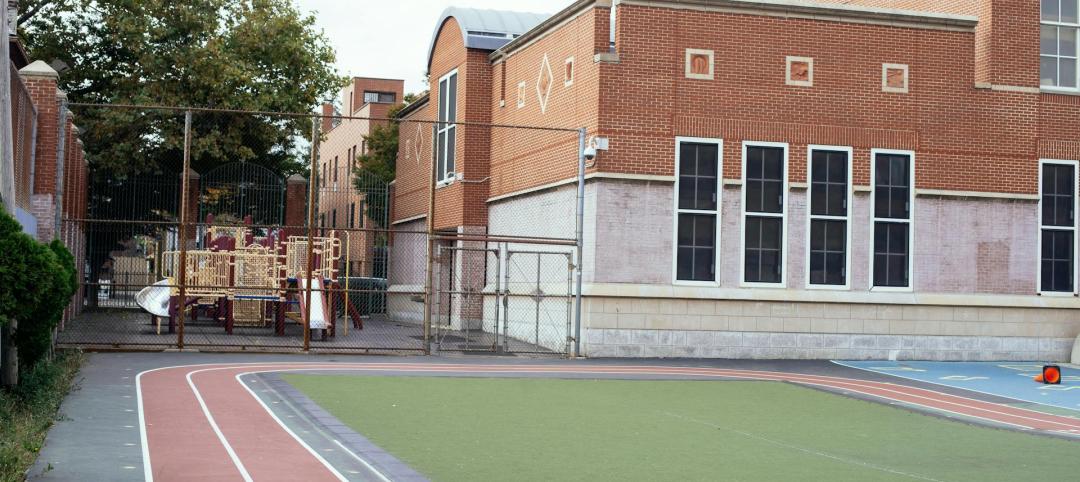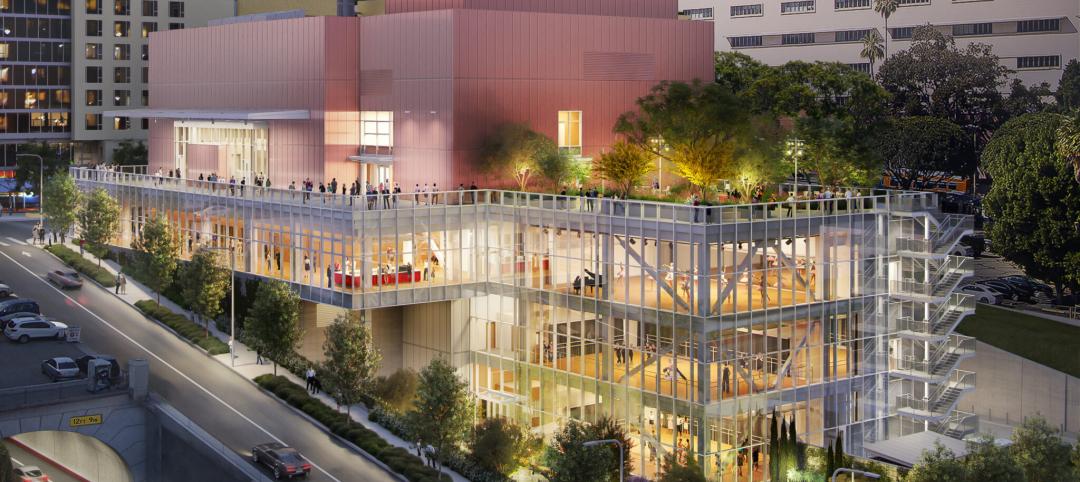The leadership of the North Shore School District, community leaders and BBS Architects, Landscape Architects and Engineers celebrated the official opening of the new athletic field, running track and supporting facilities.
The district encompasses a high school, middle school and three elementary schools. BBS served the district as architect and engineer for the project. Savin Engineers provided construction management services.
“The new, $3.8-million, 100,000-square-foot sports complex replaced and expanded the deteriorated facilities which were insufficient for the needs of the district’s 2,850 students,” says BBS Director of Architecture Joseph B. Rettig, AIA, LEED AP. “The new complex includes a multi-use, synthetic turf field; an eight-lane running track; and a 1,700-square-foot concession, bathroom and storage building.”
The creative financing for the project included a combination of the district’s private/not-for-profit and other public sources. This public/private combination of funding sources was unusual for a school-related construction project, but made financing easier at the time when local property tax increases in New York State are capped at 2%. The support of the Viking Foundation allowed the district to utilize funds raised through direct taxation to maintain the necessary level of instructional activities, while still making the construction of the new field and track possible.
The BBS team faced several engineering challenges, including the requirement to protect a neighboring wetland recharge basin and a poorly draining fill and soil at the site of the new field.
The complex also includes a new, one-story, multi-purpose building that serves as the main entry port to the athletic facilities. The building consists of two structures connected by a pitched steel truss roof with gray asphalt shingles and a reverse gable. The entryway between the buildings is protected by a decorative iron gate. The entire athletic facility received a new security system. +
Related Stories
Lighting | Mar 4, 2024
Illuminating your path to energy efficiency
Design Collaborative's Kelsey Rowe, PE, CLD, shares some tools, resources, and next steps to guide you through the process of lighting design.
MFPRO+ News | Mar 1, 2024
Housing affordability, speed of construction are top of mind for multifamily architecture and construction firms
The 2023 Multifamily Giants get creative to solve the affordability crisis, while helping their developer clients build faster and more economically.
Multifamily Housing | Feb 29, 2024
Manny Gonzalez, FAIA, inducted into Best in American Living Awards Hall of Fame
Manny Gonzalez, FAIA, has been inducted into the BALA Hall of Fame.
K-12 Schools | Feb 29, 2024
Average age of U.S. school buildings is just under 50 years
The average age of a main instructional school building in the United States is 49 years, according to a survey by the National Center for Education Statistics (NCES). About 38% of schools were built before 1970. Roughly half of the schools surveyed have undergone a major building renovation or addition.
MFPRO+ Research | Feb 28, 2024
New download: BD+C's 2023 Multifamily Amenities report
New research from Building Design+Construction and Multifamily Pro+ highlights the 127 top amenities that developers, property owners, architects, contractors, and builders are providing in today’s apartment, condominium, student housing, and senior living communities.
AEC Tech | Feb 28, 2024
How to harness LIDAR and BIM technology for precise building data, equipment needs
By following the Scan to Point Cloud + Point Cloud to BIM process, organizations can leverage the power of LIDAR and BIM technology at the same time. This optimizes the documentation of existing building conditions, functions, and equipment needs as a current condition and as a starting point for future physical plant expansion projects.
Data Centers | Feb 28, 2024
What’s next for data center design in 2024
Nuclear power, direct-to-chip liquid cooling, and data centers as learning destinations are among the emerging design trends in the data center sector, according to Scott Hays, Sector Leader, Sustainable Design, with HED.
Windows and Doors | Feb 28, 2024
DOE launches $2 million prize to advance cost-effective, energy-efficient commercial windows
The U.S. Department of Energy launched the American-Made Building Envelope Innovation Prize—Secondary Glazing Systems. The program will offer up to $2 million to encourage production of high-performance, cost-effective commercial windows.
AEC Innovators | Feb 28, 2024
How Suffolk Construction identifies ConTech and PropTech startups for investment, adoption
Contractor giant Suffolk Construction has invested in 27 ConTech and PropTech companies since 2019 through its Suffolk Technologies venture capital firm. Parker Mundt, Suffolk Technologies’ Vice President–Platforms, recently spoke with Building Design+Construction about his company’s investment strategy.
Performing Arts Centers | Feb 27, 2024
Frank Gehry-designed expansion of the Colburn School performing arts center set to break ground
In April, the Colburn School, an institute for music and dance education and performance, will break ground on a 100,000-sf expansion designed by architect Frank Gehry. Located in downtown Los Angeles, the performing arts center will join the neighboring Walt Disney Concert Hall and The Grand by Gehry, forming the largest concentration of Gehry-designed buildings in the world.
















